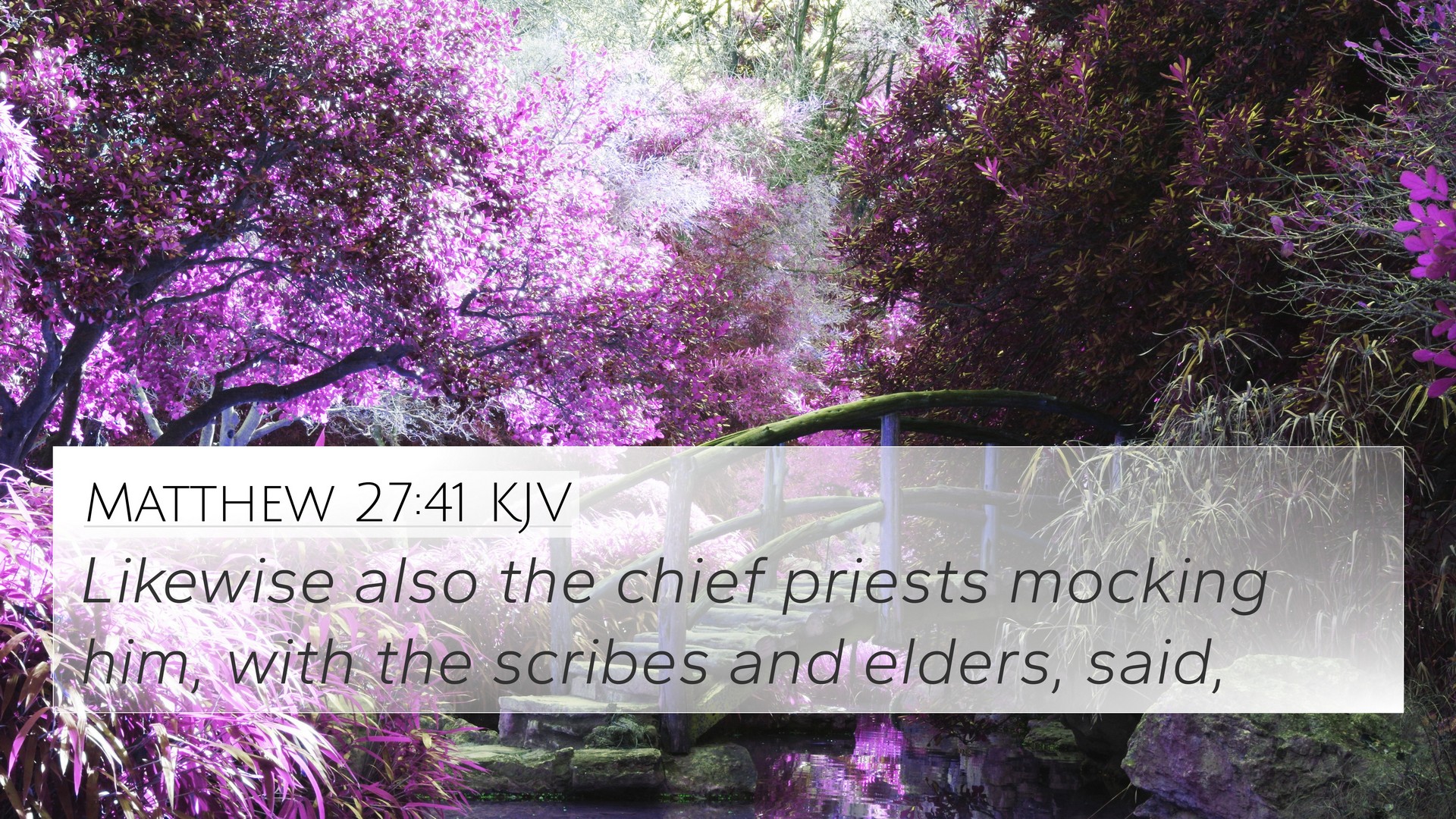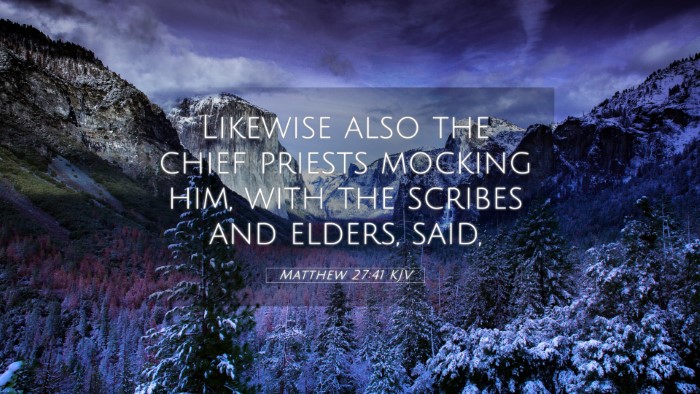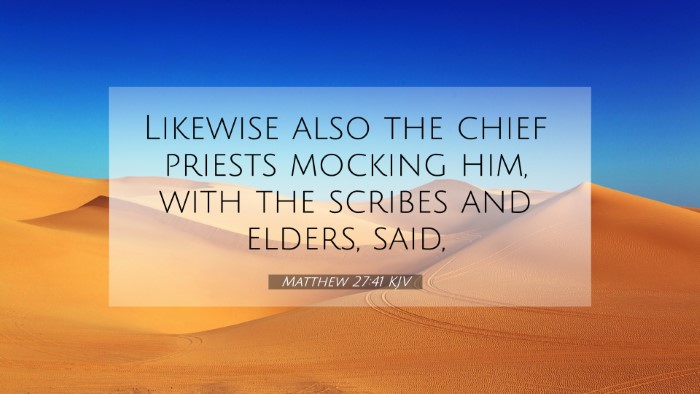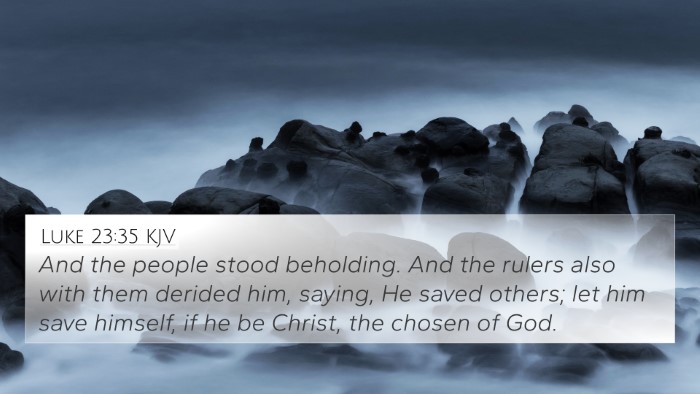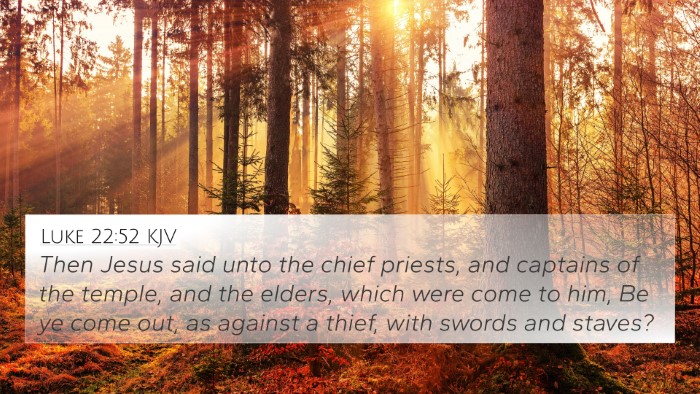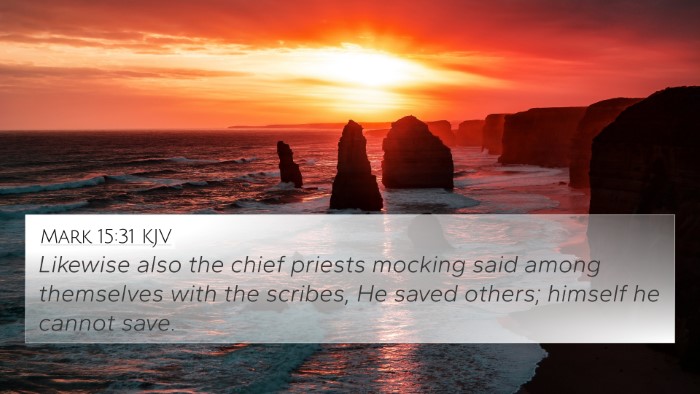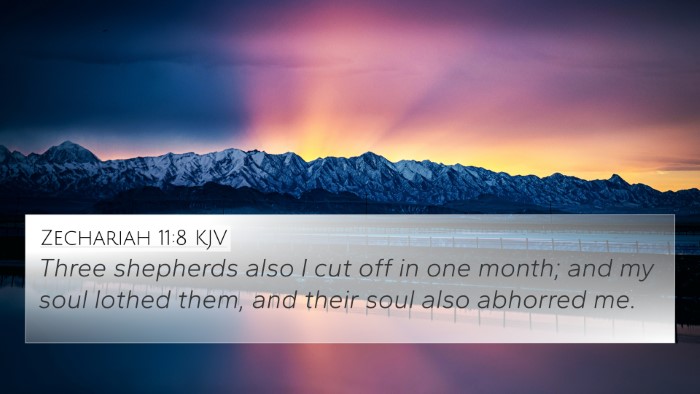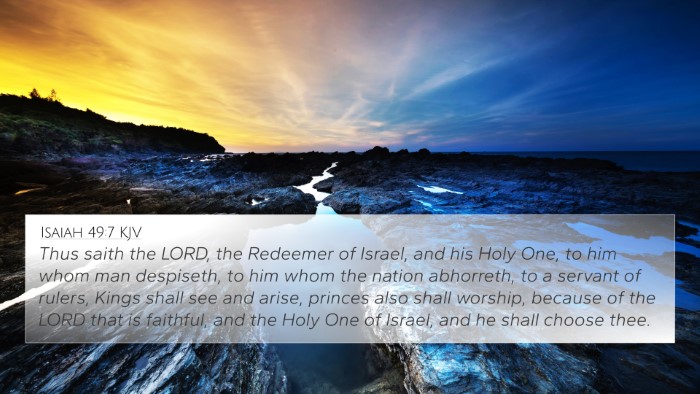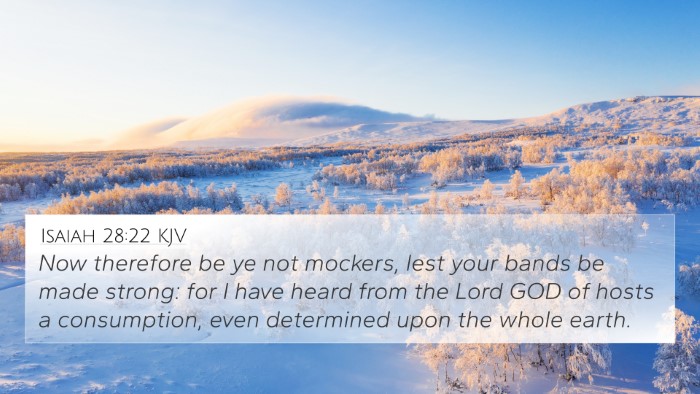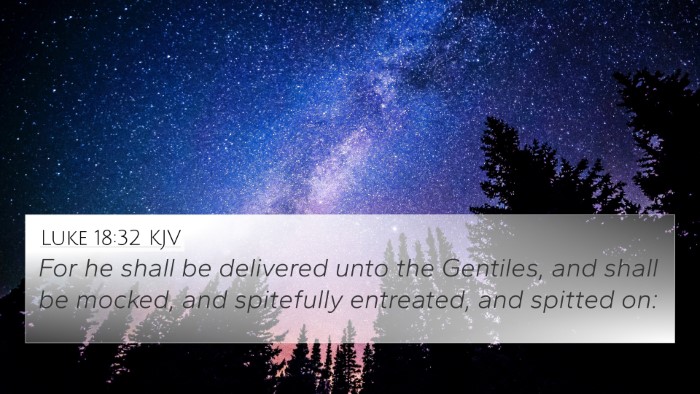Understanding Matthew 27:41
Bible Verse: Matthew 27:41 - "In the same way the chief priests and the teachers of the law and the elders mocked him." (NIV)
Summary of Meaning
Matthew 27:41 presents a poignant moment during the Crucifixion of Jesus where the religious leaders mock Him. This event unfolds in the context of the Passion narrative, where the crowd is divided in their perception of Jesus. The mocking reflects their disbelief in His authority and messianic identity. The actions of the chief priests, scribes, and elders illustrate a profound spiritual blindness, showcasing their rejection of the prophetic fulfillment of the Scriptures through Jesus.
Commentary Insights
-
Matthew Henry's Commentary:
Henry notes that this mockery by the chief priests signifies their hardened hearts and unwillingness to recognize Jesus as the Messiah. The ridicule demonstrates a contrast between their worldly wisdom and spiritual understanding. Their taunt suggests an absence of recognition for the miracle of the cross, which ultimately unveils God's plan for salvation.
-
Albert Barnes' Commentary:
Barnes emphasizes the social and religious dynamics at play, where the religious authorities aimed to maintain their power by demeaning Jesus. He points out that their sarcasm presents a deep irony; they were unwittingly fulfilling prophecies concerning the suffering of the Messiah (see Isaiah 53:3). Their mockery serves to illustrate the deeper theological implications of Christ's sacrificial death.
-
Adam Clarke's Commentary:
Clarke provides insights into the historical context of the verse, highlighting how the Jewish leaders were particularly incensed by Jesus’ claims to divinity. He elaborates on how their mockery indicates their failure to understand the nature of Jesus' mission, and in their derision, they fulfill Psalm 22:7-8, which foretells the mocking of the suffering servant. Clarke also highlights the communal aspect of the mockery where it is not just individuals scoffing but a collective rejection by those in power.
Connections with Other Bible Verses
The following verses can be cross-referenced to enhance understanding of Matthew 27:41:
- Isaiah 53:3 - This verse prophesies about the rejection of the Messiah, tying into the ridicule Jesus faced.
- Psalm 22:7-8 - Details the scorn heaped upon the sufferer, resonating with the mockery described in Matthew 27:41.
- Matthew 26:67 - Captures a similar scene where Jesus is beaten and mocked before the Sanhedrin.
- Luke 23:35 - Provides further details on how the rulers sneered at Him, echoing the sentiments of Matthew 27:41.
- John 19:15 - Depicts the choice between Jesus and Barabbas while illustrating the hostility Jesus faced from the public and leaders.
- 1 Peter 2:23 - Reflects the response of Jesus to such treatment, highlighting His silent endurance.
- Galatians 6:7 - Reveals the principle that mocks those who sow discord will reap consequences, contextualizing the judicial and moral severity of the leaders' actions.
Inter-Biblical Dialogue & Thematic Connections
Matthew 27:41 invites an examination of the broader themes of mockery, rejection, and prophecy fulfillment in Scripture. The verse offers a point of connection among various biblical authors who expound on Jesus' suffering:
- Connections between the Old and New Testament: The prophetic verses in Isaiah and Psalms foreshadow the events of the New Testament, specifically the mocking that the Messiah would face.
- Thematic Bible verse connections: Themes of suffering and humiliation in the lives of Jesus and other biblical figures create a narrative of solidarity among the faithful who endure mockery and persecution.
- Bible verse parallels: Comparative analyses between the mockery of Jesus and other prophets (e.g., Elijah, Jeremiah) enrich the understanding of the prophetic call.
Tools for Bible Cross-Referencing
For those interested in detailed study, there are multiple tools and resources available for effective cross-referencing of Bible verses:
- Bible Concordance: A helpful tool for locating words and themes throughout scripture.
- Bible Cross-Reference Guide: Guides that help understand connections between different verses more comprehensively.
- Cross-Reference Bible Study: Techniques for evaluating themes and topics across the biblical canon.
Conclusion
Matthew 27:41 is not simply an isolated instance of ridicule; it is part of a larger narrative that highlights the rejection of Jesus as the Messiah, while also fulfilling ancient prophecies. This verse invites reflection on themes of suffering, fulfillment, and the complexities of faith in the face of derision. By examining disparate biblical texts, one gains a richer, more nuanced understanding of the multifaceted dialogue present in Scripture.
